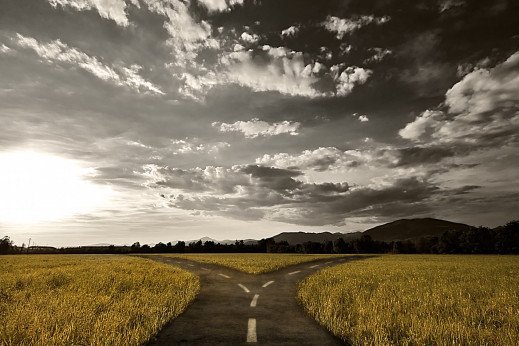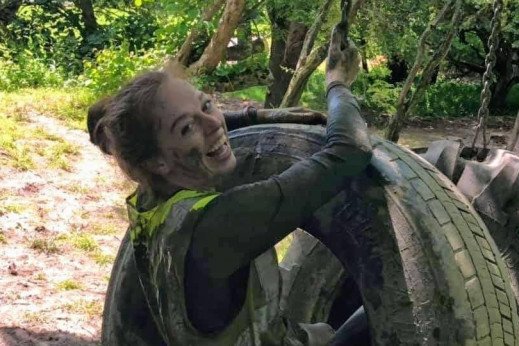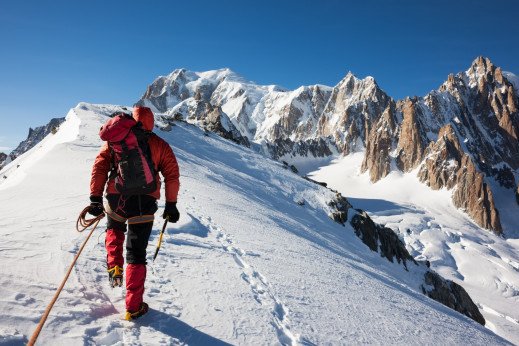Two years ago, I hit rock bottom. On the 20th of November 2016 for the first time I fell asleep hoping I wouldn’t wake up. The pain in my head was so intense from anorexia's voice that I would’ve given anything to black out. My body was physically closing down and mentally I was black.
Even to this day, I want recovery more than anything, yet struggle with the process of what that means. As I eat and function normally and crave that as a healthy human, this demonic part of my brain still pulls me back like an annoying toddler craving attention.
I want so desperately to focus on my recovery achievements. In gaining weight despite the fact that everything in my body and mind was and still is screaming at me not to, every single day I have to overcome a mental hurdle that many people will never experience. It can be frustrating that nobody other than someone who has experienced anorexia themselves really understands the significance of the type of courage that you have to rev up all day every day in order to get into a recovered body. I wish it were something that I could put on my CV and be respected for in that way. It is my greatest achievement and yet I can’t show off about it, and it won’t help me land a million-dollar job. I won’t get a gold medal.
I know I don’t need any trophies other than the one I am living in. I don’t need anyone else to know either because I know. I know what I went through and I know what I did. I hope one day I start to see my recovery body as a trophy. I've said it before and I'll say it again: eating disorders are so poorly understood and misconceived. They are seen as an individual that is heavily represented as a young, white female, making an active choice to starve themselves, irrespective of the feelings of those around them. Eating disorders are judged in a way that is astounding compared to other mental or physical illnesses.
Even more troubling than the general perception of someone suffering from an active eating disorder is the perception of somebody in recovery. I'd like to say it's limited to the ignorant, but sadly it's a common misconception of friends, family, therapists, GPs, psychiatrists and most of the professionals and people who should be offering support and understanding.
Anorexia is not a physical illness. It isn’t just about weight or BMI. Being a 'normal' weight is not an indicator of recovery on its own. Eating disorders are mental illnesses. Weight gain and reduction in physical symptoms are not indicative of an individual's wellbeing. It's so damaging to somebody in recovery to be labelled as 'recovered' simply because they're weight restored. The message it gives is 'get on with life', 'you're better now', 'you don't deserve support', 'you were never ill in the first place', 'you just chose to live that way!' I always felt that the people around me assumed it was almost a silly phase I went through, like dying my hair blue.
What people don't appreciate is that one of the most difficult parts of recovery is being able to accept a 'normal' body while the mind is still 'anorexic'. Being a healthy weight means that a lot of buried feelings return. These can be painful and difficult to process, all on top of having to deal with a new larger but healthier body. It's a critical point in recovery – just as the help and support dries up, things get tougher emotionally. Depression, PTSD and OCD aren't judged by appearance so why is it assumed that somebody with an eating disorder who's a healthy BMI is mentally well? You can be both physically and mentally ill with an eating disorder at any size.
The best therapists understand that many of their patients already have the answers to their problems, and they just help them unearth them. That's why the cliché line associated with a therapist is 'how does that make you feel?' That may be the key question for you to answer and with that discovery, you will learn valuable things about yourself.
I tried what the doctors told me to do and everyone else from my mum, partner, friends, dad and society. Only did I truly recover when I was alone and learnt to look after myself. That's when I learnt I don't want to eat at times I'm told to by society, eat certain calories or food groups – I want to shovel in chocolate at weird times of the day and eat until I can't breathe sometimes but nibble like a mouse at others. I don't want litres of water or to do so many steps. I learnt to listen to my own unique body. Like we'll all look different on the outside, we all have different personalities, like different tastes, prefer different flavours, enjoy different music and films and have different hobbies – so why would we all need to eat the same?
It's a difficult climb, but one that has to come from inside yourself and not from society's voice and knowing that the people around you understand that no matter what you're physically showing, it is no representation of the journey you're processing from within.
Contributed by Laura
What happens when you start to feed your brain again?
5 May 2021You have to learn how to live again and, like with any lessons, you often have to fail to learn the best way or the right way...
"Things can improve, even when it feels hopeless"
29 April 2021In the past I’ve wanted to hide the eating disorders that are part of my history, but I want to shout from the rooftops: I'm proud of how far I had come!
"This year has taught me to be kinder to myself"
21 December 2020What a year 2020 has been in general for everyone – it was a year no one ever could have imagined, from panic buying, toilet roll shortages, lockdowns and restrictions. Yet for so many, including me, the battle against an eating disorder continued.


